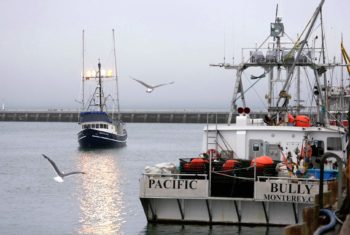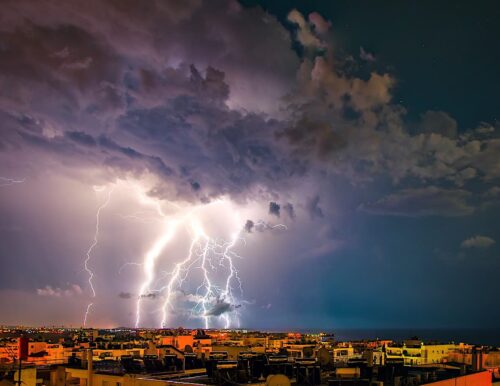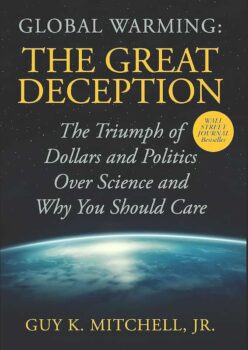
According to The Guardian, PCFFA members have soured on the case since it was filed and are speaking out about the hypocrisy of suing fossil fuel companies for producing the very products they rely on to power their fishing boats and question if litigation is the best way to address climate change.
These comments are particularly noteworthy given how this case was launched in 2018. As EID Climate noted at the time, cozy ties between the leadership of the group and attorneys seemed to be the reason for the case.
But as we see now, the group itself may not actually have been on board.
Litigation Hypocrisy
The Guardian – the media outlet that has consistently boosted plaintiffs’-driven climate lawsuit – undercut the PCFFA’s case when its article asked “who’s to blame?” for poor water quality and lower crab populations.
The article shows that some fishermen are uncomfortable suing energy companies while relying on oil themselves:
“Dick Ogg, a silver-haired former electrician who switched to making his living catching crabs two decades ago, is a staunch supporter of the union representing fishing boat captains along America’s western seaboard.
“But when he heard that the Pacific Coast Federation of Fishermen’s Associations was suing some of the world’s largest oil companies for causing the climate crisis, Ogg took stock of the barrels of diesel oil stacked on his vessel, the 54-foot Karen Jeanne, and wondered if the litigation was not only a mistake but hypocritical.
“‘How do we run our engines without oil? How do we fish without oil? Electricity? I’m a small vessel. I’m only 68 tons and my God, I don’t know how that would work.’” (emphasis added)
Other leaders in the fishing industry expressed similar reservations about the lawsuit:
“Clint Funderburg, a member of the Oregon Coast Crab Association who fishes out of Newport, said he was reluctant to pin responsibility for the domoic acid outbreak solely on the climate crisis, and therefore the fossil fuel industry.
“‘They were some hard years, but these problems come and go. I’m not saying there isn’t climate change but there’s a history of domoic acid on this coast and I don’t know if we can say it’s one thing or the other causing it,’ he said.
‘…We all use diesel on our boats,’ said Funderburg. ‘I’m not going to point the finger just at the oil companies. They sell it, we buy it.’” (emphasis added)
Activist-Inspired Lawsuit
Mike Conroy, the head of the PCFFA, supports the lawsuit, but even The Guardian acknowledges that there is “skepticism among Conroy’s members about suing big oil,” and Ogg said:
“The problem for me is suing never seems to solve the problem. The oil companies aren’t going to be hurt by a lawsuit. In fact, they want to continue, they’re going to continue.” (emphasis added)
The comments from Funderburg and Ogg confirm what has been evident since the lawsuit was initially filed—the case reflects the interests of a few, rather than the majority of the fishermen.
The history of the PCFFA lawsuit shows the continuing involvement of activists with ties to Sher Edling, the law firm representing most of the municipalities that have filed climate lawsuits.
In fact, Tim Sloane, who served as the PCFFA’s executive director from March 2015 to February 2017, left the organization to join Sher Edling.
This makes it all the more peculiar that an article has appeared criticizing the lawsuit in—of all places—The Guardian.
The Guardian’s Support for Anti-Energy Campaigns
An article featuring comments that undercut climate litigation is a big surprise from The Guardian.
For years, the media outlet has been part of anti-energy activist campaigns, and in 2015, it partnered directly with 350.org on a Keep It In the Ground campaign.
More recently it has been the publication of choice for activists promoting attribution science, which seeks to quantify the degree to which climate change harms can be tied to specific companies.
In 2019, Richard Heede, a board member of the Climate Accountability Institute and proponent of attribution science, released a flawed attribution report that the Guardian promoted with 11 pieces of content, including video, opinion columns, and a timeline.
Small wonder that a year later, climate activists presented The Guardian’s Heede coverage with a “SEAL” (Sustainability, Environmental Achievement, and Leadership) Award.
The Guardian has also collaborated with the Columbia Journalism Review and The Nation on Covering Climate Now, a Rockefeller-funded project “to make climate a part of every beat in the newsroom.”
In fact, this article on the fishermen was part of The Guardian’s “Climate Crime” series supported by the Rockefeller Family Fund.
While Lawsuit Stalls, Energy Industry Moves Forward
Since the PCFFA lawsuit was filed in 2018, it has made next to no progress moving through the court system and won’t do anything to address climate, and now fishermen are beginning to speak out over the hypocrisy of the case.
In sharp contrast, the energy industry has made impressive strides to reduce emissions by improving operations and efficiency, pioneering new technologies, and investing billions of dollars in research & development.



















Another stupid lawsuit based upon Junk Science and Politics
This is a classic example of people gaining control of an organization, in this case PCFFA, and using that control to pursue a liberal agenda that is against the best interest of its members.
Right behind the cost of labor fuel is the greatest cost to the fishing fleet. They use a great deal of fuel. The concept that the supplier of a legal product is liable for its use is as invalid for fishermen as it is for cities. It is the same concept as suing breweries for the impact of drunk driving. The responsible parties are the end users. If climate change were real and there was liability for the use of fuel by the fleets, it is the fishermen who would be liable.